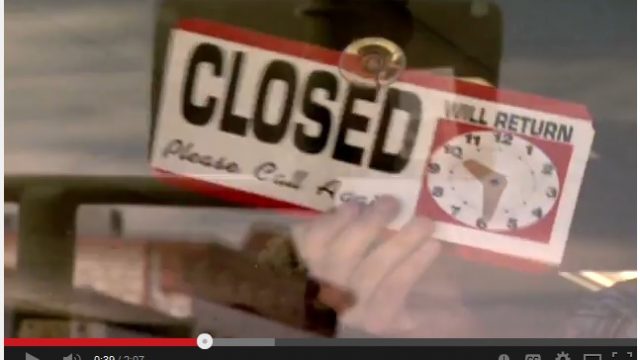Federal government employees’ union getting a PR makeover

By Eric Boehm | Watchdog.org
The labor union representing more than 600,000 federal government employees plans to spend the next year asking the American people for a raise.
They’re going to do it by showing everyone they’re just like you.
JUST LIKE YOU: A new PR campaign says federal government workers are just like you – except they make more money, get better benefits and can close down your business if you don’t follow all their rules.
The American Federation of Government Employees, or AFGE, says the campaign is meant to counter people’s negative view of public employees. Polls show fewer than one in five Americans have confidence in federal employees, though there was a brief uptick in those numbers during last year’s government shutdown.
A two-minute video released last week by the union previews the coming PR campaign.
The year-long campaign will include 15 short documentaries about the lives of government employees, with a new video released once every three weeks.
“The goal of this campaign is to break down the stereotypes that some folks have about federal employees and the federal government, and to highlight all the great work that federal employees are doing,” said J. David Cox, AFGE national president.
The union says it wants to talk about not only the services the government provides, but also about the people who provide those services. To hear them tell it, the nation would pretty much cease to exist without federal workers.
They provide clean water, keep drugs off our streets and — most amazingly — “keep small businesses in operation.”
Jean Card, spokeswoman for the National Federation of Independent Businesses, said the pronouncement made her laugh out loud.
“Seriously, what an absurd claim. Small-business owners keep their doors open in spite of government, not because of it,” she said when shown the AFGE video. “This reminds me, sadly, of when the president said, ‘You didn’t build that.’ Sometimes I wonder if any of these folks have ever met a small-business owner.”
The PR blitz comes after last year’s government shutdown, when all non-essential government employees got a two-week vacation because Congress failed to reach a budget deal. As Watchdog.org reported at the time, there were few actual disruptions to ordinary life — aside from those manufactured by the government to make it seem more necessary.
All those workers eventually got back-pay when the federal government reopened, but Americans are a sympathetic bunch, it seems.
In the weeks after the government shutdown, polls found an uptick in people’s confidence in the competence of government employees.
Those percentages aren’t great, but at least they’re better than congressional approval ratings.
The labor union’s PR campaign also is meant to drum-up support for another pay increase for federal workers. The union for U.S. postal workers tried a similar tactic last year when it appeared Congress might cut the mail service.
After blocking pay hikes for three years, congressional Republicans relented during the backlash that followed the government shutdown. President Obama has called for another 1 percent increase in federal workers’ pay in 2015.
But the ads are unlikely to highlight the reality for employees of the federal government — the fact that they get paid better than the private-sector workers who fund their salaries through tax dollars.
In 2012, the Congressional Budget Office concluded that federal workers, on average, got better pay and benefits than private-sector workers with the same level of education. Though federal workers’ pay was only 2 percent better than their average private-sector counterparts, the CBO found the government spent 48 percent more on benefits for workers than private-sector businesses.
The difference is greatest for people with the least education. Workers with only a high school diploma earn, on average, 72 percent more per hour in a job with the federal government than in a private-sector job, the CBO concluded. For workers with a master’s degree, federal government jobs paid only 36 percent more per hour, on average.
The ads probably will steer clear of several other important details, like the fact that AFGE officials were convicted and sentenced on 10 separate occasions during 2013 for crimes including wire fraud, theft and embezzlement, according to data collected by the Center for Union Facts, a nonprofit that tracks political spending and bad behavior by unions.
In the most egregious of those cases, the former head of the AFGE Local 1380, based in Panama City, Fla., was sentenced to 30 months in jail after pleading guilty to 24 counts of wire fraud totaling more than $91,000.
Contact Eric Boehm at EBoehm@Watchdog.org, and follow @EricBoehm87 and @WatchdogOrg on Twitter for more.







